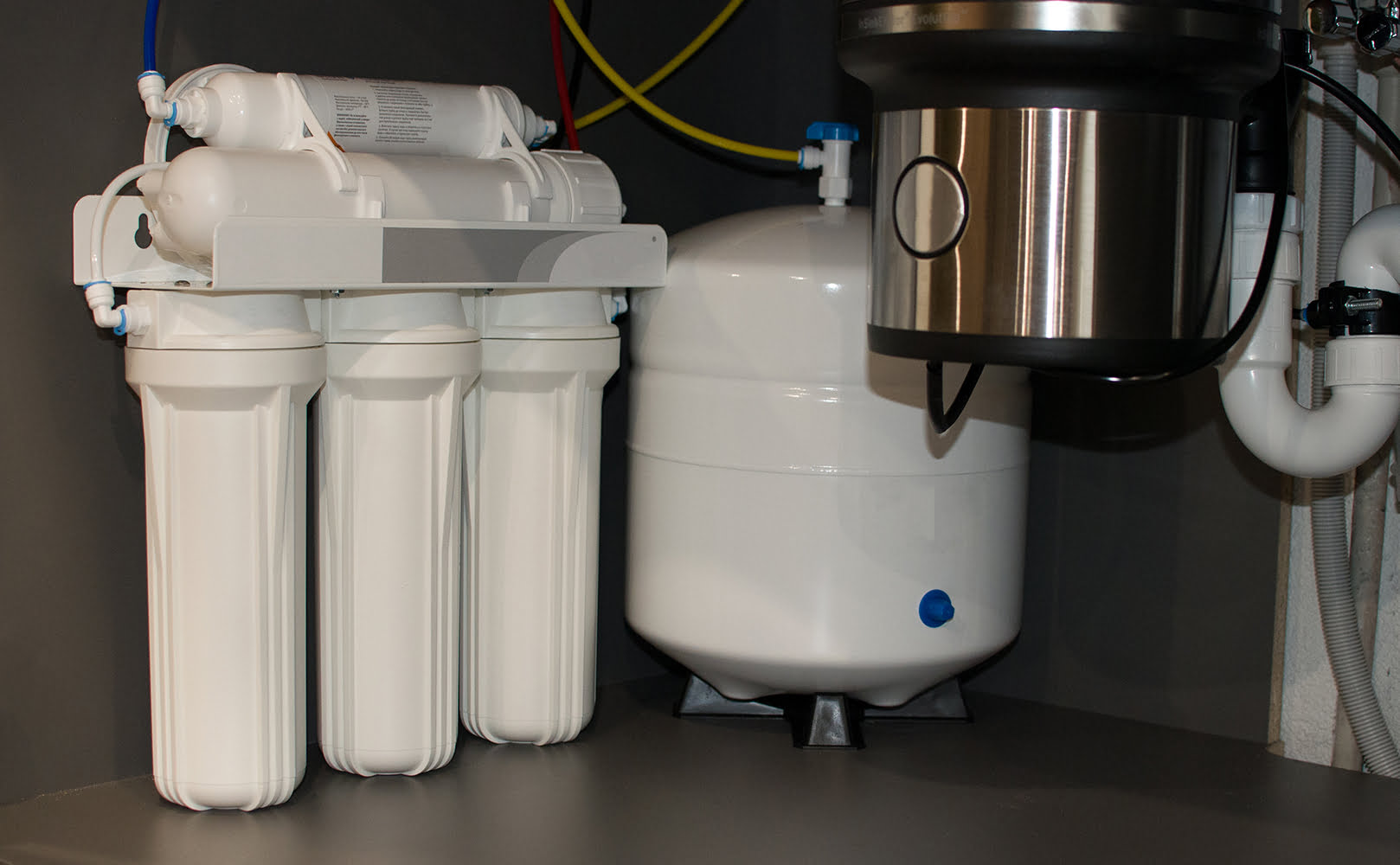Do You Need a Water Softener with Reverse Osmosis? Find Out Here
Written by: Alexandra Uta // Last Updated: Apr 28, 2023
This page may contain affiliate links. If you buy a product or service through such a link we earn a commission at no extra cost to you. Learn more.
Reverse osmosis and water softening are both commonly used in modern households to improve the quality of water.
However, even though some people tend to mix them up, reverse osmosis systems and water softeners are very different, both in their intended application as well as the way they work.
One question that commonly pops up in this context is whether you need to use a water softener for reverse osmosis. Let’s find out!
Key Takeaways
- Using a water softener together with a reverse osmosis system is not mandatory, but it can be helpful.
- Pre-treatment with a water softener is often necessary when dealing with particularly hard water.
- Without a water softener, a reverse osmosis system would clog up much faster when filtering hard water.
Do You Need a Water Softener with Reverse Osmosis?
So, do you need a water softener with reverse osmosis?
By default, you don’t need to use a water softener together with a reverse osmosis system.
However, if you have hard water, that’s a different story. In this case, using a water softener for pre-treatment is highly recommended. Otherwise, you risk shortening the lifespan of your reverse osmosis system and having to maintain it more frequently.
Why Get a Water Softener for Your Reverse Osmosis System
There are several reasons to get a water softener for your reverse osmosis system. In general, all of those boil down to having hard water. Keep in mind that your water doesn’t need to be really hard to make the use of water softener sensible. You should do some research and evaluate the quality of your water to figure out if that’s the case.
Longer Lifespan: A Water Softener Protects Your RO from Clogging
By using a water softener, you will prevent your reverse osmosis system from clogging prematurely. Normally some fouling will always occur on the reverse osmosis membrane, but when your water is particularly hard, this will happen much faster. Many water treatment experts will immediately recommend that you use a water softener together with your reverse osmosis system if your water is very hard.
More Effective RO Water Purification
And because your membrane will not end up getting clogged, your reverse osmosis system will work more efficiently as well. You will have to perform less maintenance on it in the long run too. However, keep in mind that these effects might only really be noticeable if your water is hard enough.
Water Softening Protects Your Plumbing System
One thing that a reverse osmosis system installed at the point of use cannot do is protect your plumbing. A water softener does that by preventing harmful buildups from accumulating. This also impacts your appliances like your dishwasher, your washing machine, and others. Scale will build up faster on them if your water is hard.
Myth: A Water Softener Will Harm a Reverse Osmosis System
Some people believe that a water softener makes a reverse osmosis system work less efficiently or even damages it because it adds sodium to the water. That’s complete nonsense. Sodium is easily filtered out by a reverse osmosis system, unlike minerals. In fact, a water softener will actually make your reverse osmosis system work better.
What’s the Difference Between a Water Softener and a Reverse Osmosis System?
There are quite a few differences between water softeners and reverse osmosis systems. That’s because the two systems are designed in completely different ways and intended to address different problems.
A reverse osmosis system works by forcing water through a semipermeable membrane at a high level of pressure. This forces water molecules to pass through the membrane while leaving everything else behind. Purpose: Removing potentially harmful contamination.
On the other hand, a water softener usually works by running water through a resin tank where hardness minerals get exchanged for sodium. In the end, the water has a slightly higher content of sodium, but a much lower content of minerals – soft water!
Even though a reverse osmosis system can technically remove minerals as well, it’s not recommended to use one for this specific purpose. That’s because these minerals can clog the membrane much faster than other contaminants. It’s recommended that you use a water softener in your filtration chain in this case.
If you have any thoughts about the question, do you need a water softener for reverse osmosis, please don’t hesitate to leave a comment below!
Information provided on BOS is for educational purposes only. The products and services we review may not be right for your individual circumstances.
We adhere to strict editorial guidelines. Rest assured, the opinions expressed have not been provided, reviewed, or otherwise endorsed by our partners – they are unbiased, independent, and the author’s alone. Our licensed experts fact-check all content for accuracy. It is accurate as of the date posted and to the best of our knowledge.


